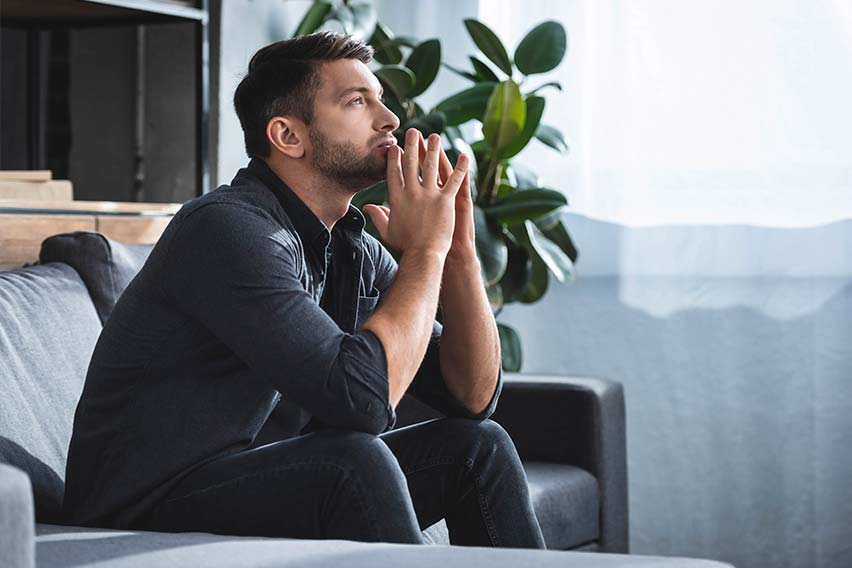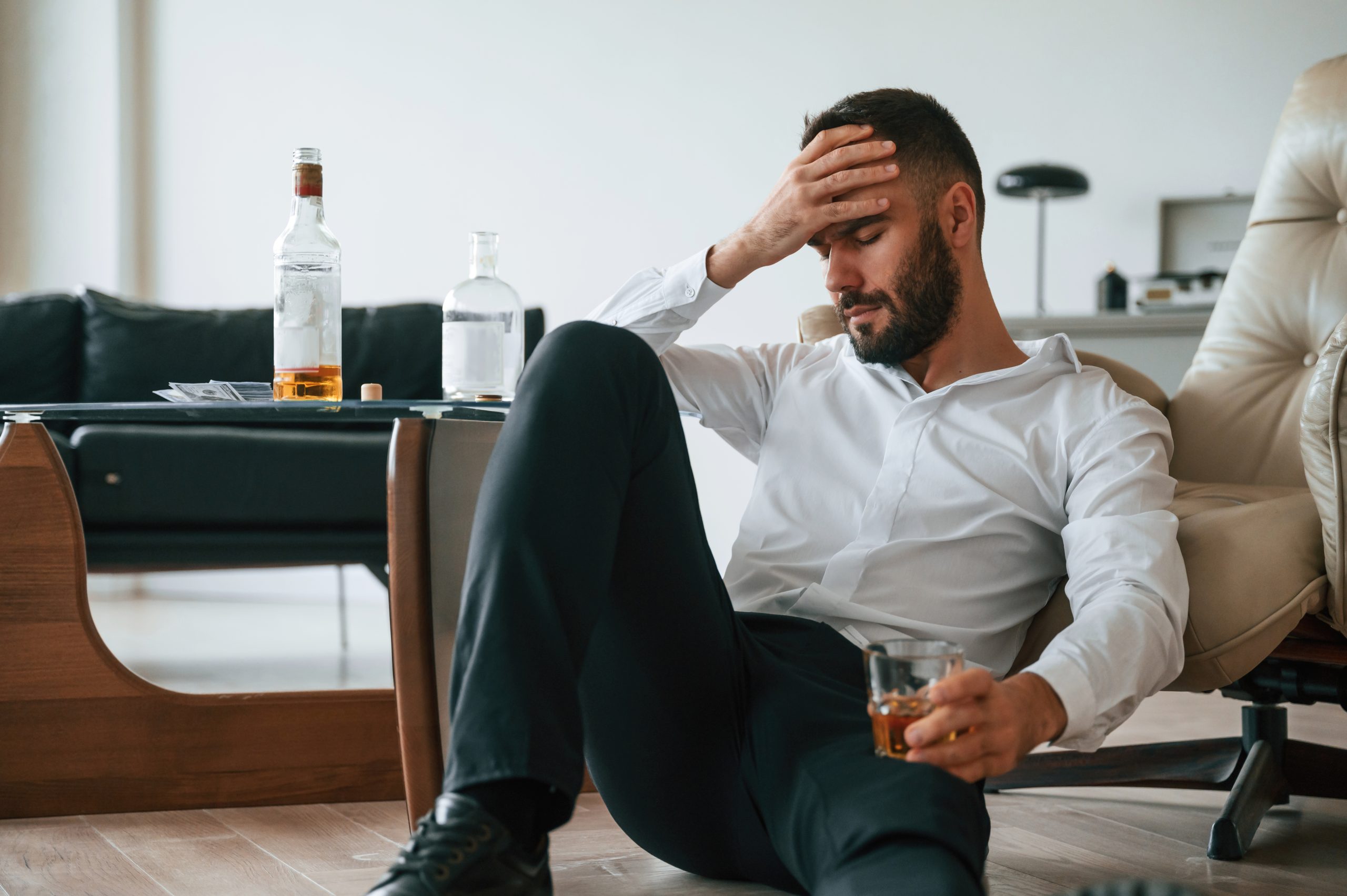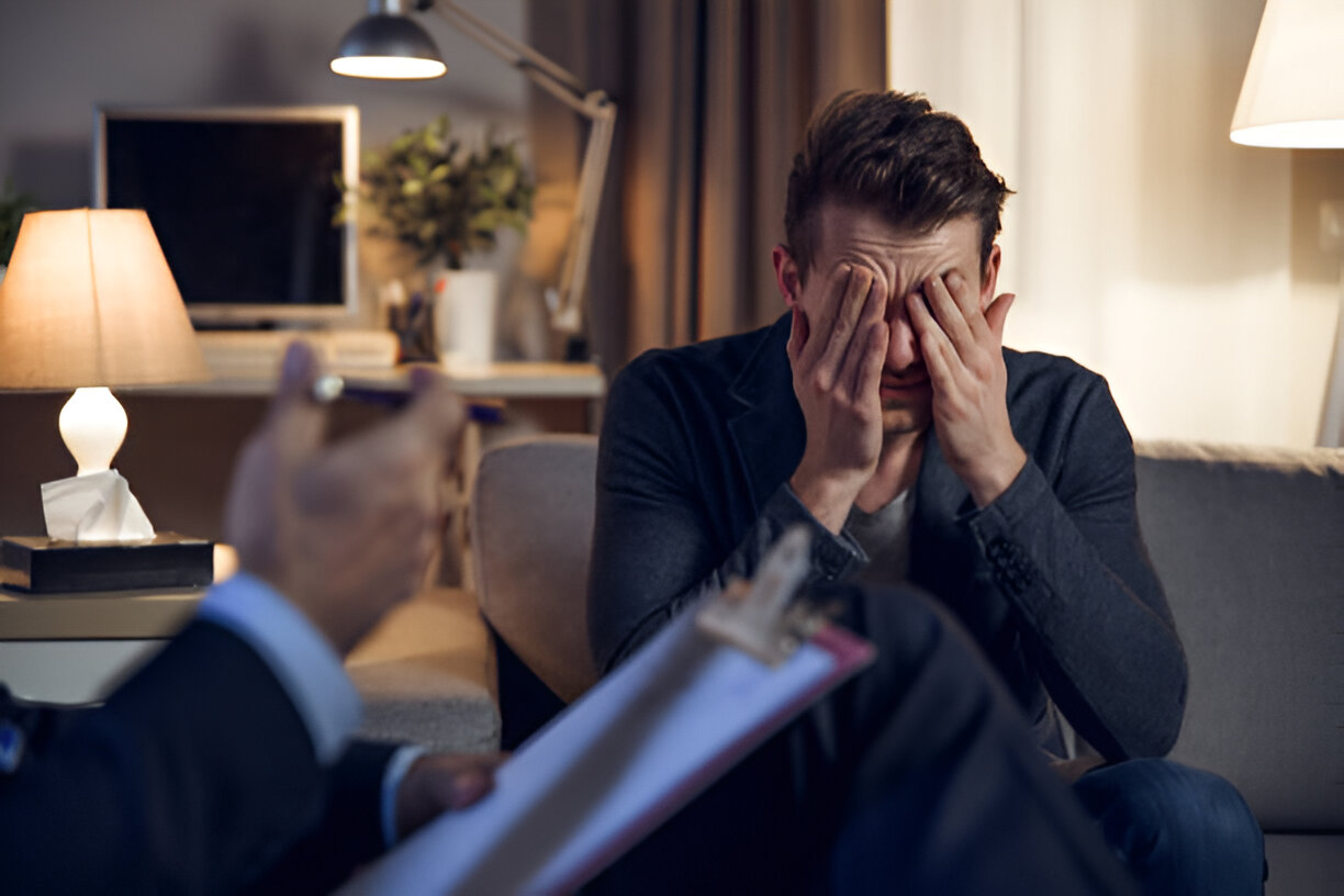Anxiety can make it difficult to function in any environment. In fact, people with severe and chronic anxiety can deal with overwhelming feelings of nervousness and fear. This occurs even when they’re at home and away from the pressures of the outside world. Some types of anxiety represent a normal and healthy response to potential danger. Others are excessive, ongoing stress that rarely has an identifiable cause. With these, symptoms like elevated heart rates, altered breathing, and outright panic can manifest, even though there’s absolutely nothing wrong.
Self-Medicating for Anxiety
Given that there’s no danger to avert, and no real problems to solve, there isn’t much that people with chronic anxiety can do to alleviate their physical and psychological discomfort. Thus, many turn to alcohol or illicit substances to obtain relief. Drinking and using drugs tricks the brain’s reward system into releasing “feel-good” chemicals like dopamine and serotonin. As a result, using substances to self-manage anxiety often appears to be an effective solution.
Sadly, however, not only is substance use a poor substitute for professional anxiety treatment, but it can also worsen the very problem that people are hoping to correct. As the consequences of drug use set in, irrational or unfounded anxiety can be compounded by the stress of very real-life problems. As people find themselves facing legal and financial challenges, adverse health changes, and issues within their personal relationships, their anxiety grows.
Moreover, ongoing changes in the brain’s reward system often make it necessary for addicts to increase the amounts of substances they use. This is done to achieve the same limited amount of relief. Over time, certain substances can even become a source of anxiety themselves, even if they once provided a reliable form of self-treatment. When addiction and anxiety go hand-in-hand, treating anxiety must always be a top priority in addiction rehab.
Different Types of Anxiety Disorders
Anxiety is an umbrella term that’s often used to describe many emotional states and a variety of mental health disorders. The normal, natural anxiety that people feel when facing dangerous challenges or circumstances is hardly the same as what’s experienced by someone with an anxiety disorder. There are actually five distinct types of anxiety disorder, and each has its own causes and effective treatments. These include:
- General anxiety disorder
- Post-traumatic stress disorder (PTSD)
- Panic disorder
- Obsessive-compulsive disorder
- Social anxiety disorder
Post-traumatic stress disorder (PTSD)
People who’ve spent time in the military or fought in wars, or have had other trauma-inducing experiences as the result of their service or other life events often deal with post-traumatic stress disorder (PTSD). This disorder is characterized by insomnia, restlessness, aggression, flashbacks, and extreme discomfort in large groups or with loud, sudden sounds.
Social Anxiety
Similarly, those with social anxiety disorder deal with heightened feelings of self-consciousness and distress in social settings. They have often experienced psychological trauma as the result of bullying, domestic abuse, or being subjected to negative behavioral conditioning early in life.
General Anxiety Disorder
General anxiety disorder is characterized by extreme feelings of anxiousness that have no discernible cause. Like general anxiety disorder, the panic disorder causes anxiety despite a lack of imminent danger. However, those with panic disorder don’t deal with anxiousness on a constant, daily basis. Instead, their anxiety comes in sudden, overwhelming bouts known as panic attacks.
Obsessive-Compulsive Disorder
Obsessive-compulsive disorder or OCD causes recurring, unwanted thoughts and compulsions to do things repetitively or in a specific order or ways, even though doing so doesn’t make sense. Just as each of these conditions are different, there are different ways of treating them. People with generalized anxiety disorder, panic disorder, and OCD often benefit from medical management that includes taking medications to correct or offset existing chemical imbalances.
With post-traumatic stress disorder and social anxiety, talk therapy, immersion therapy, stress management techniques, and other non-medication strategies are often used to promote mood balance and higher life qualities.
Signs and Symptoms of Anxiety
Anxiety is to some degree, a normal and expected part of life. It can be difficult to tell when it’s progressed from being a natural emotion to a condition that’s having a negative impact on your life. Anxiousness and the ability to experience it is hard-wired into the human brain. It’s a part of your built-in fight-or-flight response, and it’s intended to promote action whenever action is necessary for keeping you safe.
As such, one of the best ways to tell whether you’re dealing with normal anxiety versus an anxiety disorder is by determining whether or not your feelings are founded. Regular bouts of unfounded anxiety generally indicate that something is amiss. More importantly, given that there isn’t an actual reason for being anxious, there aren’t any obvious solutions for naturally alleviating it.
Physically, chronic anxiety tends to make people feel sick. Anxiety isn’t meant to be an ongoing or long-experienced emotion given the amount of stress that it puts on the body. With natural or necessary anxiety, fear is felt and appropriate actions are taken to mitigate danger. Without action, fight-or-flight chemicals like cortisol and adrenaline continue to flood the body.
This can cause:
- Physical weakness and fatigue
- Trouble focusing or concentrating
- Tense muscles
- Stomach pain and gastric distress
as well as an elevated heart rate, sweating, irritability, and insomnia.
Anxiety and Addiction
For some people, drinking or using drugs can provide quick relief by promoting the release of chemicals that cause relaxation and euphoria. Problems with addiction arise quickly as tolerance is built, and as the brain and body begin responding differently to substances. When drugs or alcohol are used as a form of anxiety management, people are setting themselves up for daily use, abuse, and then ultimately addiction.
Worst of all, many substances have an impact on brain chemistry that slowly makes anxiety worse. Panic attacks occur more frequently, social anxiety increases, and problems with sleeplessness, restlessness, and fatigue can grow exponentially. Although substance use can seem like a solid solution to chronic anxiety, it often exacerbates the symptoms of this disorder, and it can also be a cause of anxiety itself. As such, treating anxiety by working with knowledgeable professionals is always the safest, surest course.
Dual Diagnosis Treatment
If you struggle with both anxiety and addiction, the best form of addiction treatment will address each of these issues at once. Without this multi-pronged approach, intense feelings of unease will always act as a trigger for potential relapse. After all, you’ve likely started using drugs or alcohol as a way to alleviate your fear and distress. Absent these substances, you’ll need a solid plan for balancing and managing your emotions long-term.
Rehab programs for people with co-occurring disorders support lasting success in recovery by eliminating the need to use. When anxiety is properly understood and properly managed, people can enjoy consistent mood balance. In some instances, this involves taking prescription medications to address chemical imbalances within the brain or other physiological issues. In others, patients learn natural, stress management techniques along with additional strategies for avoiding unnecessary triggers. These can include:
- Yoga
- Meditation
- Diaphragmatic breathing
- Art therapy
- Journal writing
- And efforts to identify and steer clear of toxic relationships and toxic environments.
People who live with comorbidities or co-occurring disorders often encounter the most formidable challenges when grappling with addiction. Their struggle goes beyond just contending with the repercussions and losses brought about by addiction itself; they additionally grapple with elevated levels of emotional stress in their day-to-day lives, regardless of whether they are actively using substances or striving to abstain from them. This complex situation necessitates specialized care, and this is where men’s rehab facilities come into play. These dedicated centers offer a comprehensive approach to treatment that takes into account both addiction and co-occurring mental health conditions.
The significance of addressing these dual challenges through men’s rehab facilities cannot be overstated. Such facilities provide a unique space where individuals with co-occurring disorders can find tailored support that takes their specific needs into consideration. These men’s rehab programs integrate a range of therapeutic approaches, combining addiction treatment with comprehensive mental health care. By addressing the interconnected nature of addiction and mental health, these programs offer a holistic path to recovery that not only helps individuals manage their substance use but also assists them in developing effective coping strategies for their co-occurring disorders.
Through dual diagnosis treatment offered in men’s rehab facilities, individuals gain the opportunity to break free from the cycle of substance abuse while also finding relief from the emotional turmoil that often accompanies co-occurring conditions. This integrated approach can lead to transformative results, enabling participants to regain control over their lives and establish a solid foundation for lasting recovery. By addressing addiction and co-occurring disorders concurrently, men’s rehab facilities offer a comprehensive and compassionate way for individuals to achieve healing and regain their sense of well-being. In essence, these facilities serve as a beacon of hope for those facing the complex challenges of dual diagnosis, guiding them toward a brighter and more empowered future.
If you’re tired of feeling anxious, and tired of using substances to mute or minimize your anxiety, we can help. Get in touch with us now by calling 833-991-2955 to learn more about the benefits of our rehab programs, and our services for co-occurring disorders.






